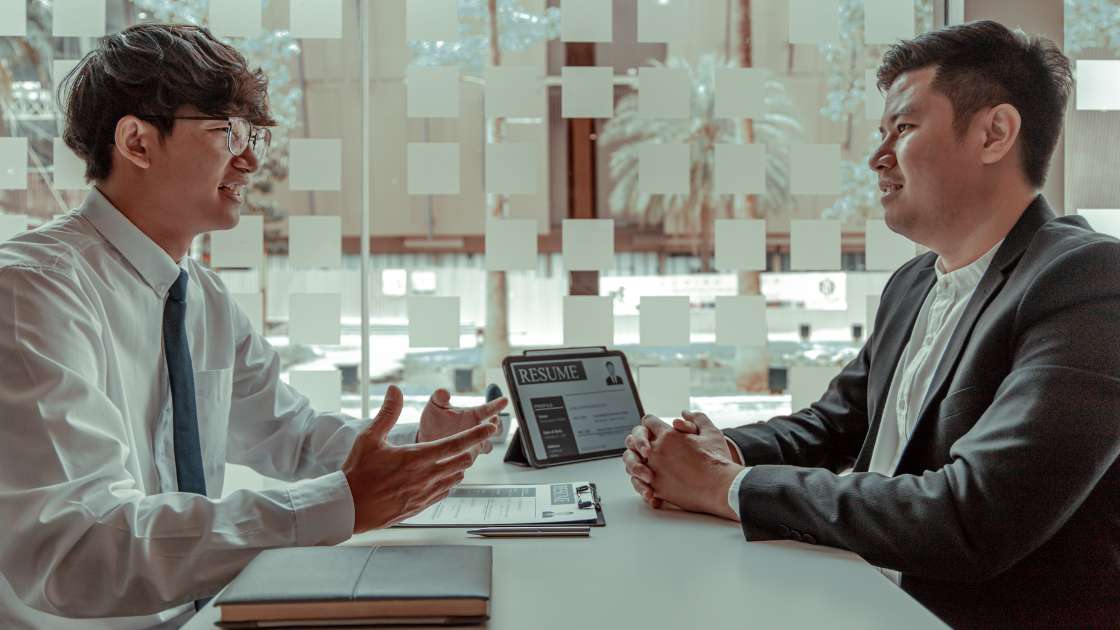Congratulations! You have been called back to hold a second interview at a company. Your first meeting obviously went well, and as a result the recruiter is seriously considering the idea of hiring you, and you’re about to find out. However, you may feel worried about how it might be different from the first and how to better prepare yourself.
There are differences to be emphasized between taking a preliminary meeting with a recruiter and taking part in a second interview at the company. Let’s look at them in detail.
Who will you meet in the second interview?
The first time you joined that company, you probably met some people from the Human Resources department. In the next step it is easier for you to make an appointment with a more senior figure and who will have the last word on your possible hiring. Before the meeting, have your interlocutor tell you all the information about the person you will meet. This will allow you to search for more details via LinkedIn or from the company website. You may find you have common interests and you will feel more comfortable once you enter the meeting room, thus increasing the likelihood of getting in sync during the interview.
How will the interview take place?
Do not believe that the scheme followed for this second interview will be the same as the previous one. You will be able to meet one person or more people on the same day. Find out from your contact person how many people you will need to meet and what the interview structure will be. If you are dealing with more people, prepare yourself well. Don’t let yourself be intimidated by this idea, look for some online articles that explain how to practice communicating trust to the people you relate to. You could try talking to friends or relatives so that when you really have to do the interview, you won’t feel so scared.
On the day of the interview, remember to interact with anyone you meet in the interview room and not only with the people who will ask you more questions. When you have to answer, look at your interlocutor right in the eye. Contact each one by calling him by his name. Making a good impression to a group of people is certainly not easy, but if you can keep calm on this occasion, it will serve you as an experience for the future of your career, as well as increasing the chances of being successful for the job opportunities in question.
What does the recruiter want to evaluate?
The main difference between the first and the second interview is in the objectives that your interlocutor has set himself, that is to discover what your strengths are and to understand if you can really be the person they are looking for. Here is the main information that a recruiter tries to ascertain in a second meeting.
1. Your level of interest in the role and the company
One thing he wants to determine is if you are still strongly interested in this job opportunity and explain more details about the role. Your level of enthusiasm is directly related to how you will react when they offer you the place and how much you will stay in the company, so if you are still passionate, make sure that this comes up.
Be ready to express what you liked most about the company that was shown to you during the first interview. Also use this opportunity to formulate any questions you have kept in mind since the last time you left that company.
2. Do you have all the necessary requirements?
During the first interview, the recruiter will have asked you for information about your career goals, your most relevant skills, so that you can better understand if your profile was really aligned with the person they are looking for. You will be asked to better illustrate in detail what you are doing, perhaps even through technical and / or theoretical tests, also asking yourself questions such as: “Describe an occasion in which you demonstrated this ability” or “How would you behave in this particular situation?”
Get ready to face an interview in which all your knowledge and skills will be well analyzed, as well as in-depth the profile requirements that the company needs to include in it. You could also receive from your interlocutor the request to give him a concrete example (a practical project / work) or a presentation to demonstrate some of your particular declared competences.
3. Are you the right person?
A good part of the second interview will be devoted to understanding if you could fit well into the company in terms of corporate culture and personality. They could even take you on a tour of the offices at this stage to be presented to your potential colleagues. They will also ask you questions related to your hobbies and interests, trying to understand how friends describe you or in which work context you prefer to move.
While answering all these questions, it is important to remain honest and authentic: after all, this second meeting is your chance to really understand if it would be good for you to work in this type of company. Having this in mind, prepare some questions for the recruiter towards the end of the interview, regarding life in the company and showing a keen interest in joining them as soon as possible. For example: “How would you describe the team of this company?” Or “What is your / your favorite aspect in working in this business context?”
4. Dissolve any doubts of the recruiter
The recruiter will certainly use this second meeting also to resolve some doubts that may have arisen during the first interview. How then can we understand what they may be?
Accurately answer those same questions that you will be asked several times, but formulate your sentences differently. This repetition might reflect that they are trying to analyze you on a certain somewhat unclear aspect in their eyes. Is there any question you have to answer? Simply ask the interlocutor to have a clarification in this regard.
And how to overcome the obstacle of areas or skills required for that kind of work that you do not know or do not have? Consider the possibility of learning them yourself later in time, if you don’t have the chance now. You can also declare that you have no difficulty in learning easily and quickly those new skills necessary to progress in your career, giving concrete examples of other occasions when you have successfully adapted to new circumstances.
5. Your availability and your salary
Finally, the second interview is often the step during which the recruiter will request information about your notice period, your salary package and your expectations in economic terms. If you have any doubts about how to deal with this part of negotiation, you can read our Hays Salary Guide to understand which are the benchmarks of your sector and the trend of the reference market.
What are the next steps?
At the end of the second interview, the recruiter will tell you what the next steps will be, but if not, you can request it. Remember to thank everyone you have met for the time you have spent, and send a follow-up email to reiterate to them that you were very happy with how the meeting took place and that you are still very interested in covering that particular role.
To make the most of a second interview opportunity, you can better prepare yourself before the meeting, give all the information you need to better understand your profile and finally try to make them understand why they should prefer you in the midst of many other candidates.





